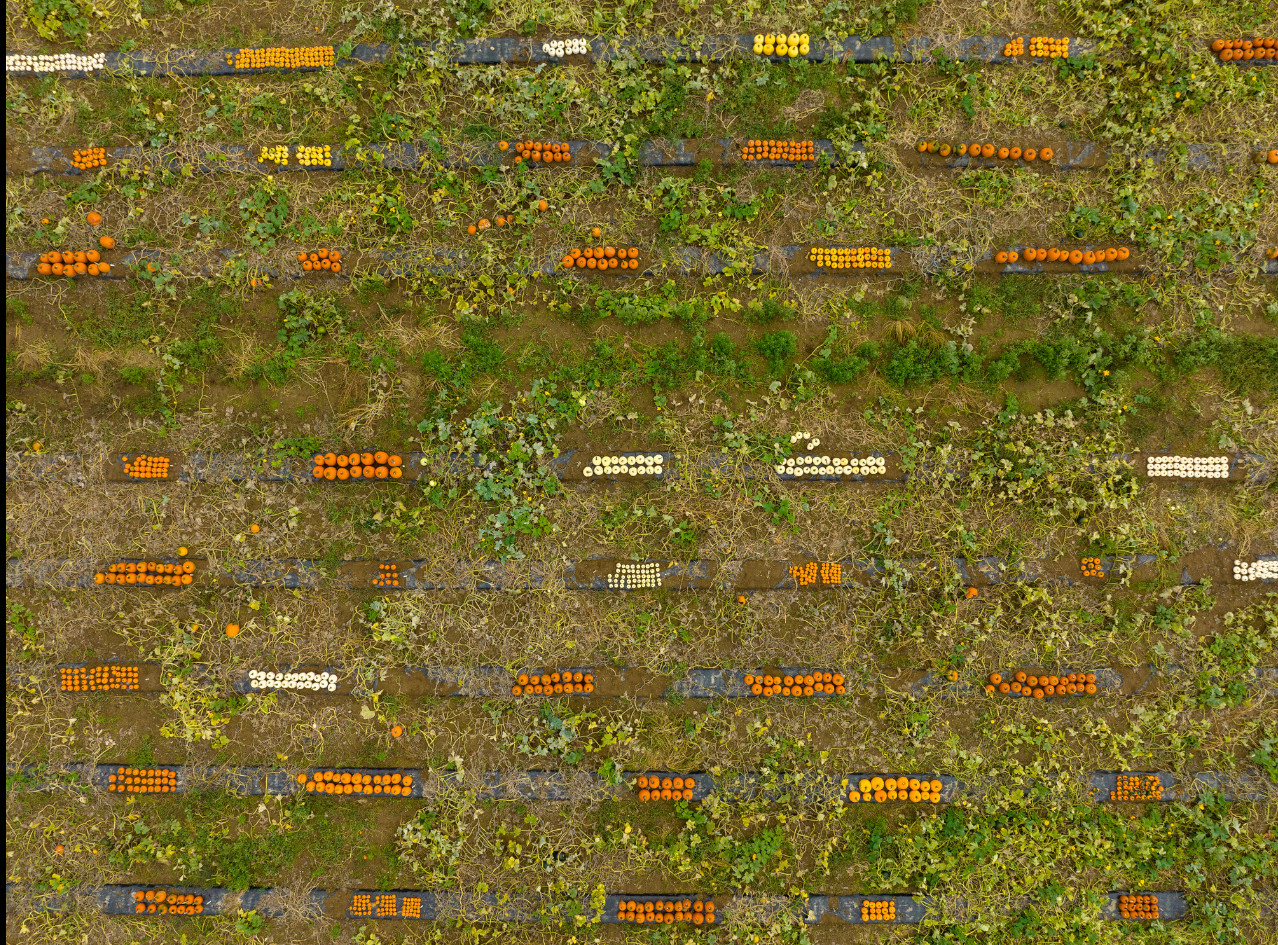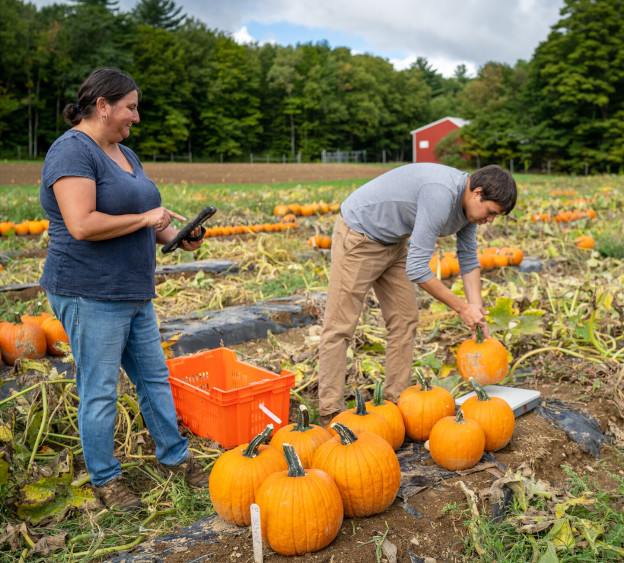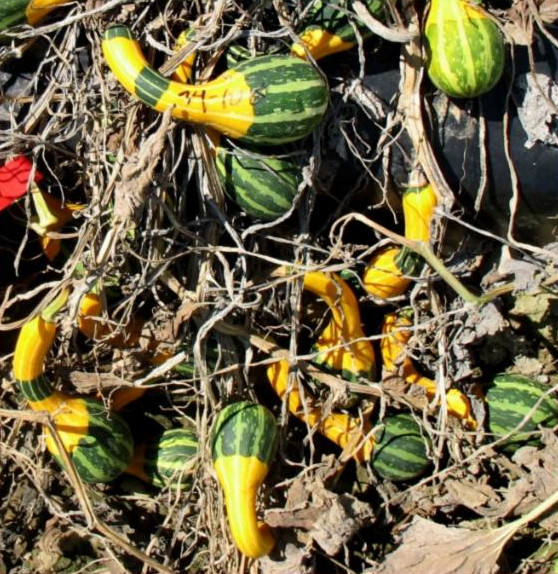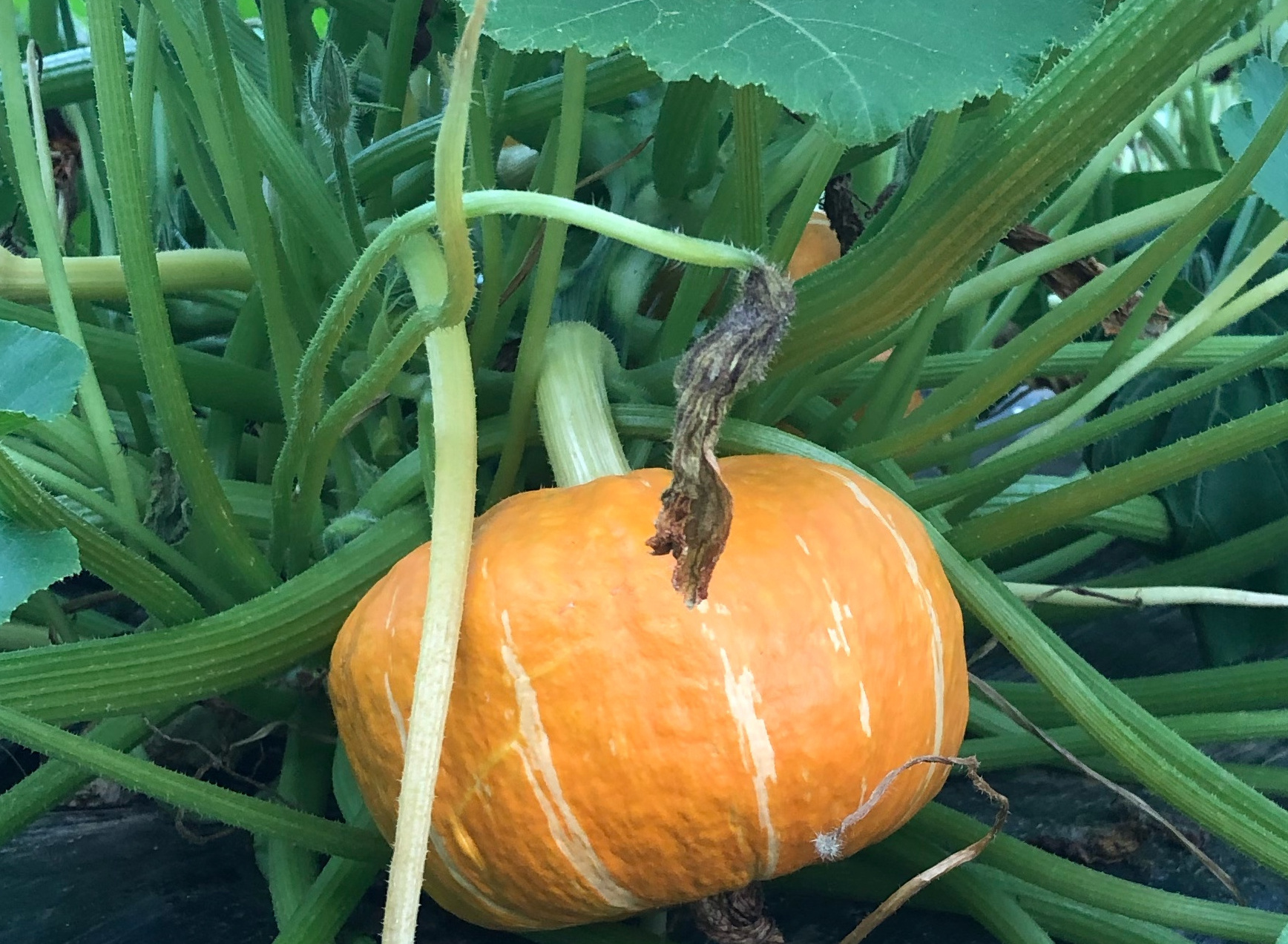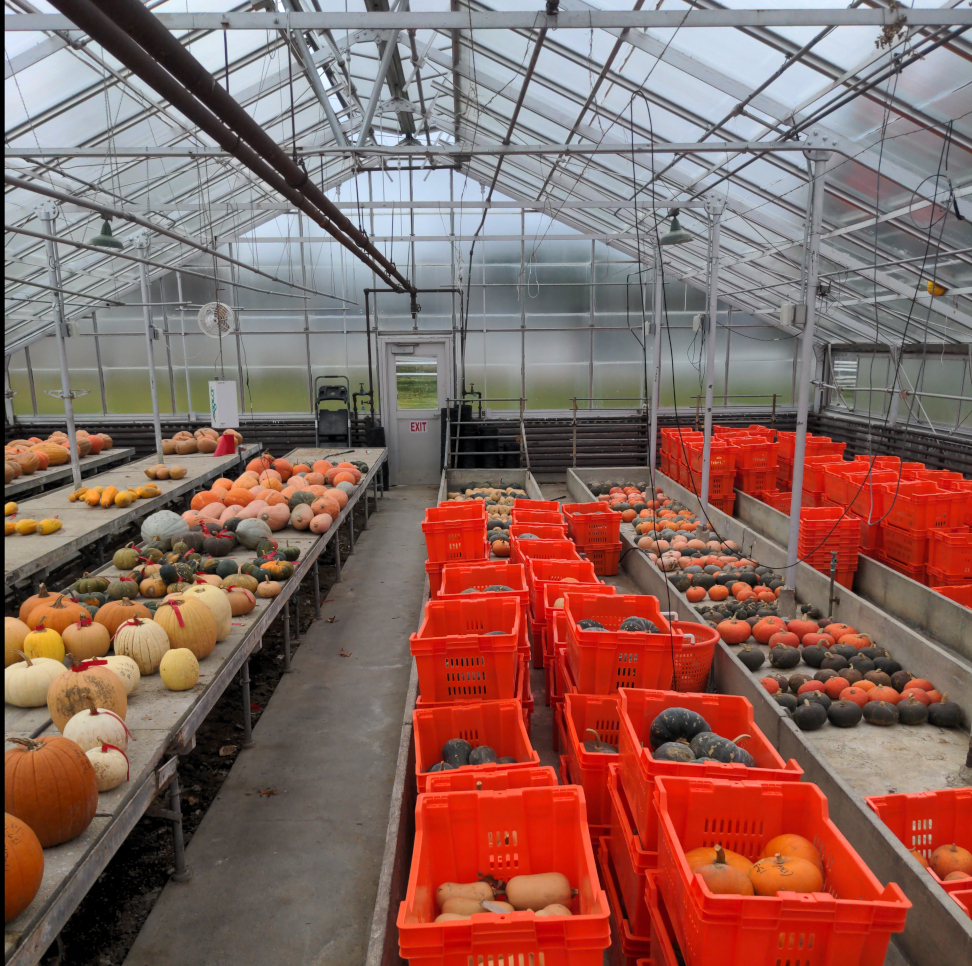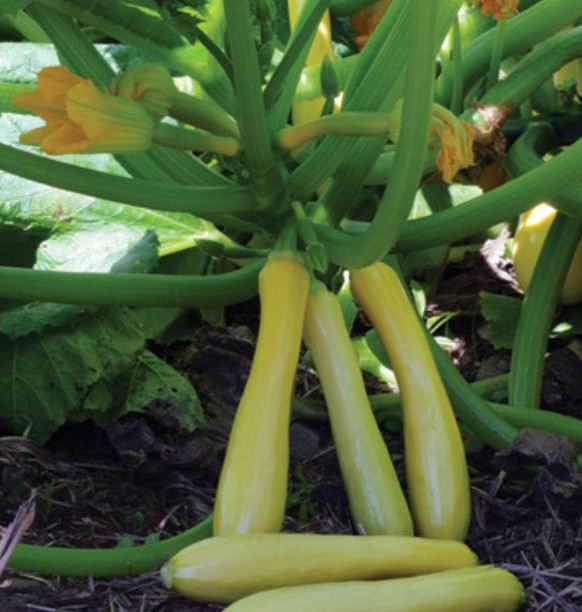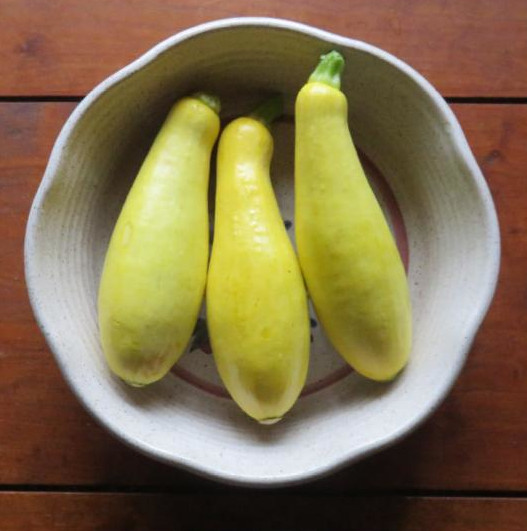Breeding program
The Cucurbitacea family is home to a number of economically important vining crops including cucumbers, pumpkins, summer/winter squash, watermelons, and muskmelons. These crops, often referred to as cucurbits, exhibit seemingly endless variation in size, shape, color, and countless other qualities.
The cucurbit breeding program at the University of New Hampshire is one of the longest run breeding programs of its kind in the United States. Work on cucurbit crops, and many other horticultural crops, began at the New Hampshire Agricultural Experiment Station in the 1940s with Drs. Albert Yeager and Elwyn Meader. From 1967-2019, Dr. James Brent Loy was the primary breeder working with cucurbit crops. His work lead to the release of over 80 varieties of squash, pumpkins, and melons.
Today the cucurbit program continues under the leadership of Dr. Christopher Hernandez. An outline of current breeding projects and objectives is provided by crop.
Pumpkins and Gourds
The rise of agrotourism has lead to a renaissance in ornamental pumpkins and gourds. Efforts in ornamental/specialty cucurbit breeding at UNH began in earnest in the mid-1980s. The UNH program has specialized in producing pumpkins with novel colors such as different shades of yellow, white, and tan. Breeding has also focused on developing pumpkins with strong, thick, stems ideal for U-pick operations.
In addition to appearance, on-going work seeks to integrate a robust disease package in all lines along with other desirable agronomic traits.
Winter Squash
Winter squash are any squash that are eaten at maturity. The breeding program works with winter squash from each of the three major squash species: Cucurbita pepo, C. moschata, and C. maxima. C. pepo breeding efforts focus on Acorn squash, C. moschata on Butternut squash, and C. maxima on Kabocha/Buttercup type squash. Cultivars developed at UNH are known for their exceptional eating quality in addition to yield and disease resistance.
Summer Squash
Squash eaten in an immature state are referred as summer squash. The UNH program focuses primarily on C. pepo cultivars.

